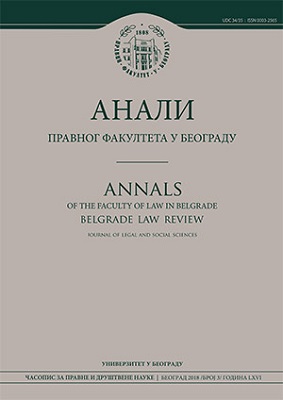Од биолошког до мешовитог метода утврђивања неурачунљивости у кривичном праву
From the Biological to the Mixed Method of Determining Mental Incompetency in Criminal Law
Author(s): Dragiša Drakić, Gordana DrakićSubject(s): Criminal Law
Published by: Правни факултет Универзитета у Београду
Keywords: Mental Incompetency; Criminal law; Methods for determining mental incompetency
Summary/Abstract: The authors have analysed first the evolution of the ideas concern ing the phenomenon of the mentally ill throughout history, up to the mod ern concept of mental illness and disorder. This approach to the treatment of the material was necessary because it is clear that the contents, as well as the legal significance, of the institute of incompetency is heavily de pendent on the prevalent concept of psychopathology. The authors assert that the current approach to the institute of men tal incompetency, which was in the beginning determined by application of the biological method, appeared in the beginning of the nineteenth cen tury, with the adoption of the then predominant psychiatric teachings on mental illness. Further in the text the authors highlight the advantages and disadvantages of this method. In an attempt to limit the growing psy chiatric influence on criminal law, a new, psychological method for de termining mental incompetency was conceived in time. Due to obvious shortcomings, this method has never managed to affirm itself, neither in theory, nor in criminal law. The authors have dedicated the final part of their work to the de tailed examination of the biological-psychological method of determining mental incompetency, which was devised in reaction to the disadvantages of the previous two methods. They stress that, unlike these methods, the mixed method ensures legal certainty because it clearly divides jurisdic tion between the judge and expert witness-psychiatrist in the proving of a person’s mental incompetency. Finally, it also affirms one of the most important achievements of the modern criminal responsibility principle – the linking of criminal responsibility to a certain crime and the moment in which it was committed.
Journal: Анали Правног факултета у Београду
- Issue Year: 66/2018
- Issue No: 3
- Page Range: 157-184
- Page Count: 27
- Language: Serbian

